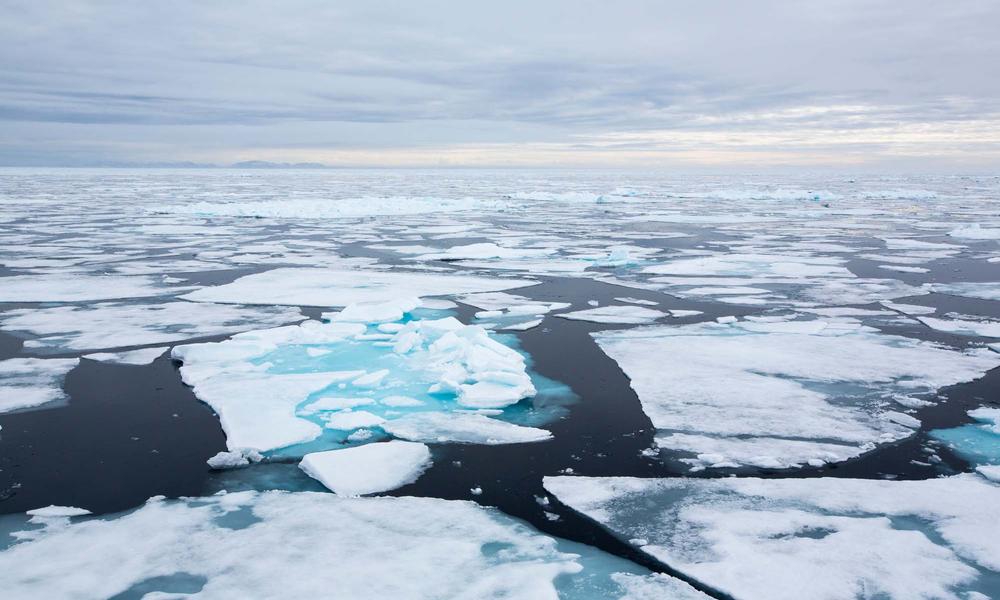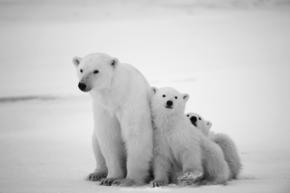Report from the World Wildlife Fund - http://www.worldwildlife.org/

The Arctic’s summer sea ice appears to have hit its lowest extent of the year, putting pressure on the region’s diverse wildlife. Ice covered only 1.6 million square miles on Sept. 10, and 2016 is now tied with 2007 for the second-lowest sea ice extent on record, according to the US National Snow and Ice Data Center. The lowest recorded extent took place in 2012 at 1.32 million square miles.

“It is difficult to predict how Arctic ecosystems will respond to decreasing sea ice extent, but we are seeing more species moving in to take advantage of warming Arctic waters, and specialized Arctic species such as polar bears showing signs of serious stress,” says Melanie Lancaster of WWF’s Arctic Program. “Conservation action to preserve the Arctic is urgently needed to keep up with these rapid changes.”
Polar bears rely on sea ice to access the seals that are their primary source of food, as well as to rest and breed. With less sea ice every year, polar bears and many other ice-dependent creatures are at high risk.
The Arctic is particularly vulnerable to extreme heat, and the region is warming at twice the rate of the rest of the world. Globally, the past 16 months have each broken consecutive heat records, with July and August 2016 tied as the hottest months ever recorded—and 2016 will probably go down as the hottest year ever recorded.
The Arctic is particularly vulnerable to extreme heat, and the region is warming at twice the rate of the rest of the world. Globally, the past 16 months have each broken consecutive heat records, with July and August 2016 tied as the hottest months ever recorded—and 2016 will probably go down as the hottest year ever recorded.
The continued warming trend highlights the urgency for national governments to take action on climate change. In December 2015, 196 nations approved a landmark global plan to curb climate change in the years to come. By its design, the Paris Agreement creates the opportunity for nations to continuously strengthen their climate actions over time, with the goal of limiting global warming to well below 2 degrees Celsius or even 1.5 degrees Celsius.
It’s time for national governments to ratify the Paris agreement. At least 55 countries representing at least 55% of global greenhouse gas emissions need to ratify the agreement to put it into effect.
WWF believes urgent and accelerated implementation of the Paris deal is necessary in order to prevent the worst impacts of climate change. This week, a United Nations special event in New York is aimed at securing the early entry into force of the Paris Agreement. The climate agreement reached in December in Paris offers us a real opportunity to act together to limit the damage and ensure a safer future for our children.
'World Wildlife Fund' saving endangered species - http://www.worldwildlife.org/

Please help us

No comments:
Post a Comment